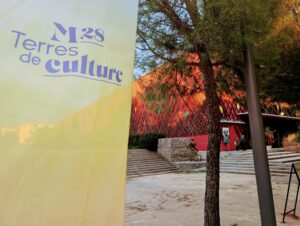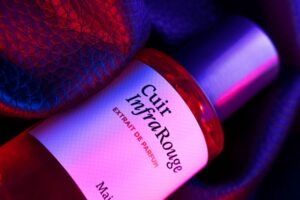Inna Modja from Paris to Bamako, serving the women cause

We knew Inna Modja for her brilliant career as a singer and actress, not to mention her facet of activism especially with the cause of women’s rights. Through this portrait, we will begin on this blog a series of reports highlighting personalities and projects committed to their scale, to remember that any personal involvement is worth more than good words.
Malian by birth and very young faced with the weight of ancestral traditions in an area where rites of passage to adulthood can mark the integrity of a woman forever. To date, surrogates have been put in place to replace the initiation ritual for women, which is FGM, a recent report from UNICEF assessing this practice affecting 200 million women worldwide. Cause to which singer Franco-Malian mobilizes, for 12 years, and more recently through including its commitment as a contributor to the UN, which considers this genital mutilation since 2012 as a violation of the fundamental rights of women and also involved itself to make it disappear by 2030.
This intimate trace can later involve in these women a physical reconstruction, using reconstructive surgery, but also psychological, and this is the whole mobilization of Inna in her music especially through a project combining video and photo, “In the skin of Marylore” showing personalities with marks on the face to raise awareness about violence.

Inna Modja, at the Dapper Museum (Photo credits: Alexandre Plateaux)
Her citizen commitment continues in the action as a sponsor of the House of Women, where she participates monthly in groups of speech because according to her, “it is the shame that locks into the silence” and does not hesitate to mobilize brave souls to support this center that helps all women victims of sexual violence, inaugurated on July 1, 2016, at the Léo Delafontaine Hospital in Saint-Denis (93) under the supervision of the doctor-gynecologist Ghada Hatem-Gantzer, who offers consultations to women victims of rape, forced marriages, incest, excision and other sexual mutilation.
This autumn 2017, we will finally meet again Inna Modja in more than 30 european theaters, starring director Daouda Coulibaly’s first film, entitled “Wulu“, which means “dog” in Bambara to enhance the wandering dog side of hero. A work both realistic and engaged showing the impact of narcotrafics in the current imbalance of all West Africa.
After making 66 festivals in the world and shooting in complicated geopolitical conditions in Mali and Senegal, the film “Wulu”, also said as the Malian “Scarface”, is a very transparent realization of the situation of this country torn between a recent conflict and temptations towards an ever increasing drug trafficking, where each iconographic scene has its symbolic.
For the figures, 18 tons of cocaine transit per year through West Africa for a value of 1.25 billion euros, and for the record, a whole constellation feeds on this traffic between the militiamen of AQIM, the political and the military elites but also the business world since the number of companies “fishing and importing shrimp” in this region has multiplied by 1000 in 10 years. This trend is naturally upsetting the regional political balances among them, the origin of events in Mali in 2012 and those between the two main political parties in Guinea-Bissau, behind which is supposed to occur a dispute between two Colombian cartels.
This action joins the approach of the “director Daouda who uses a film to tell”, according to the productor Éric Névé, with this film very political but endowed with a quality of image tainted by these magnificent regions.
Last disc released “Motel Bamako” – Inna Modja, available here.








